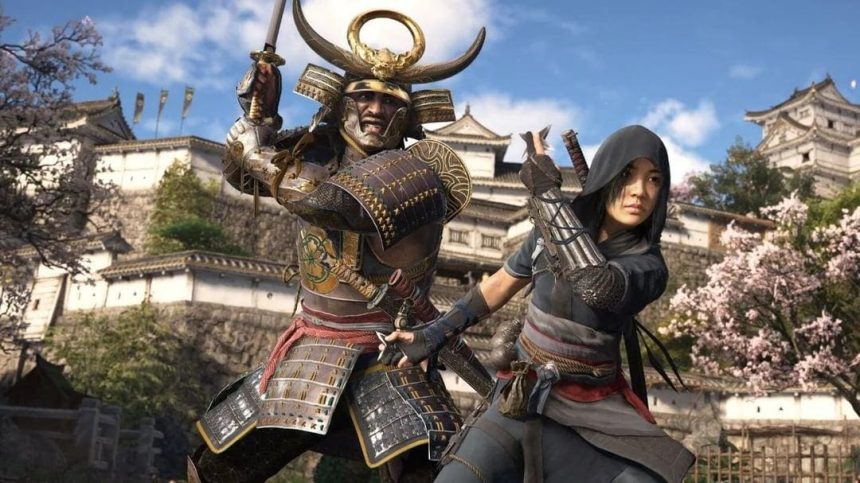Ubisoft’s 2024 was a challenging year, and the dawn of 2025 hasn’t brought much respite. The company recently announced yet another delay for its highly anticipated title, Assassin’s Creed Shadows, pushing its release from February to March 2025. This marks the second postponement for the game, which was initially slated for a 2024 launch. While both the official statement to shareholders and the message to fans cite incorporating community feedback as the primary reason for the delay, the underlying circumstances suggest a more strategic rationale.
The official explanations emphasize the utilization of player feedback to enhance the game and create an optimal launch environment. Ubisoft claims it’s using this extra time to implement feedback received over the past three months and build upon the growing positive sentiment within the Assassin’s Creed community. However, the feasibility of implementing substantial changes based on feedback within a single month for a game of this magnitude raises questions. Such short delays are typically reserved for final polishing, bug fixes, and minor adjustments rather than significant overhauls. This leads to speculation that the “best conditions for launch” alluded to in the corporate statement might refer to a more strategic consideration: avoiding a crowded release window.
February 2025 was shaping up to be a battleground for major game releases, with titles like Kingdom Come: Deliverance II, Civilization VII, Avowed, and the highly anticipated Monster Hunter Wilds all vying for players’ attention. Releasing Shadows amidst such fierce competition, particularly against a behemoth like Monster Hunter Wilds, would have been a risky proposition for Ubisoft, especially given the importance of Shadows to the company’s performance. March, on the other hand, presents a less congested landscape, with Xenoblade Chronicles X Remastered being the most prominent release, offering Shadows a better chance to stand out and capture a larger market share.
While Ubisoft understandably avoids explicitly stating its desire to circumvent a crowded release window, the competitive landscape undoubtedly played a significant role in the decision. The company’s reluctance to acknowledge this factor stems from the potential negative perception of prioritizing market strategy over player feedback. It’s a delicate balancing act between delivering a polished product and maximizing its commercial success.
The delay also underscores the inherent challenges in game development and the increasing complexity of modern AAA titles. Balancing player expectations, internal deadlines, and market dynamics requires careful planning and adaptability. While delays can be frustrating for eager fans, they often serve the ultimate purpose of ensuring a higher quality final product. In this case, the extra month could allow Ubisoft to further refine the game, address any lingering bugs, and optimize performance, ultimately contributing to a more satisfying player experience.
Furthermore, the delay allows Ubisoft to carefully monitor the reception of its competitors’ releases in February. Observing player reactions, identifying potential market gaps, and fine-tuning its marketing strategy based on the performance of other titles can give Shadows a competitive edge. This data-driven approach allows Ubisoft to optimize its launch strategy and maximize the potential for success.
The future of Assassin’s Creed Shadows remains uncertain despite the delay. While recent previews have shown promising improvements and addressed some initial concerns, a cloud of pessimism still lingers among some fans. The franchise’s long history, while boasting immense success with titles like Valhalla, also carries the weight of potential franchise fatigue. Whether Shadows can reignite the passion of existing fans, attract new players, and win back lapsed players remains to be seen. The game’s success hinges on its ability to deliver a fresh and engaging experience that captures the essence of Assassin’s Creed while also pushing the boundaries of innovation.
The gaming landscape has evolved significantly since Valhalla’s release in 2020. Player preferences have shifted, new genres have emerged, and the competition has intensified. Ubisoft faces the challenge of adapting to this dynamic environment and delivering a product that resonates with today’s players. The additional development time, while ostensibly for incorporating feedback, also provides an opportunity to further refine the game and ensure it meets the evolving expectations of the gaming community.
Ultimately, the delay of Assassin’s Creed Shadows reflects the complex interplay of factors influencing game development and release strategies in today’s competitive market. While community feedback undoubtedly plays a role, strategic considerations, market dynamics, and the pursuit of a polished final product all contribute to such decisions. Only time will tell if the extra month proves beneficial for Shadows and allows it to live up to the expectations of both fans and Ubisoft. The game’s performance will be a crucial indicator of the franchise’s enduring appeal and Ubisoft’s ability to navigate the ever-changing landscape of the gaming industry.



